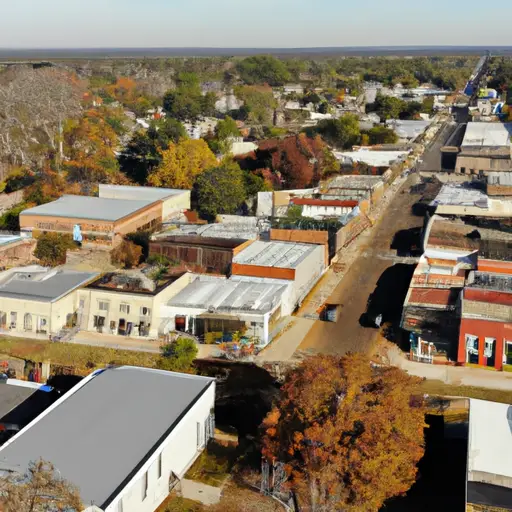Selma City : Interesting Facts, History & Information

- By
- Aparna Patel
- |
- 2 Aug, 2023
- |

Selma is a city located in Central Alabama and is the county seat of Dallas County. It is located on the banks of the Alabama River and is around 65 miles west of the Alabama state capital, Montgomery. Since its founding in 1819, Selma has been an important hub of commerce and transportation and is currentlyknown as the “Queen City of the Black Belt.”
Selma has a deep and rich history rooted in the Civil Rights Movement. It was the site of a major march for voting rights in 1965, during which civil rights activists, led by Dr. Martin Luther King Jr., were met with violence when trying to cross the Edmund Pettus Bridge. The Selma to Montgomery marches helped inspire the passage of the Voting Rights Act of 1965, ultimately leading to wider access to the polls for African Americans. Selma is also the home of the award-winning film Selma, directed by Ava DuVernay.
Today, Selma is a vibrant town in Central Alabama. It is home to the historic St. James Hotel, the Selma-to-Montgomery National Historic Trail, Brown Chapel AME Church, National Memorial for Peace and Justice, and the National Voting Rights Museum. The city is also home to several museums, restaurants, and boutiques. Selma is a great destination for anyone looking to learn about the city’s history or experience its culture by visiting its various attractions.
Interesting Facts About Selma City
1. Selma, Alabama was the final destination of the historic civil rights march, known as “Bloody Sunday” on March 7, 1965.
2. Selma is home to the National Voting Rights Museum and Institute, which was founded in 1977 to preserve and promote the history and accomplishments of the 50-year struggle to secure voting rights for all citizens of our nation.
3. Selma is the birthplace of blues legend Willie Dixon, and is also home to the annual Selma Blues Festival, which has been held every year since 2008.
4. The Edmund Pettus Bridge, scene of the Bloody Sunday march, is listed in the National Register of Historic Places, and is now a popular tourist destination.
5. Selma is home to the historic Brown Chapel A.M.E. Church, which was the starting point for the Selma-to-Montgomery march.
6. In 2015, Selma was announced as one of the State of Alabama’s three winners in the America’s Best Communities competition. The city won a $3 million prize to spur economic development and revitalize the city.
7. Selma is the home of the seven-story Queen of the West Hotel, which was built in 1852 and is one of the oldest hotels in the South.
8. Selma is the home of the Alabama Shakespeare Festival, which is the largest and most comprehensive professional not-for- profit theatre in the United States portraying the works of William Shakespeare and other writers.
9. Selma is home to the historically black college Selma University, which was founded in 1878 as a private religiously affiliated school.
10. In 2002, Selma designated a portion of the city’s Dallas Avenue area a National Historic District. The district was added to the National Register of Historic Places in 2004.
What is Selma known & Famous for
Selma, Alabama, is best known for the historic civil rights marches of 1965 when civil rights activists marched from Selma to Montgomery, Alabama in support of voting rights for African Americans. The event became known as “Bloody Sunday” due to violence that erupted between protesters and police. This event has since been commemorated with the Selma to Montgomery National Historic Trail, and the Selma Bridge Crossing Jubilee celebrated every year on the commemoration of “Bloody Sunday” to honor the civil rights activists that marched.
- Boaz City : Interesting Facts, History & Information
- Bay Minette City : Interesting Facts, History & Information
What Is It Like To Visit In Selma City?
Visiting Selma, Alabama can be a unique and memorable experience for any traveler. Located in the heart of the historically-rich Black Belt region of the state, Selma is home to a number of historic sites, including the Edmund Pettus Bridge—the site of the infamous Bloody Sunday Selma-to-Montgomery voting rights march of 1965. If you’re a history buff, a visit to the National Voting Rights Museum & Institute should be high on your list of sights to see.
In addition to its many attractions, Selma is a quintessential Southern town with a friendly and welcoming atmosphere. Spend an afternoon at the popular Riverfront Park, riding the paddlewheels or gaining insight into the city’s history with a stroll down historic Church Street. Stroll along the banks of the Alabama River and immerse yourself in the charming downtown area, featuring restaurants, boutique stores, and traditional Southern architecture. And if you’re in town on the third Saturday of the month, make sure to visit during the Selma Flea Market- the largest in the state!
Search Posts
Latest posts
-
4 Mar, 2024
How can I do a "broad" search for flights?
-
4 Mar, 2024
How to make dining alone less awkward?
-
4 Mar, 2024
Can I accidentally miss the in-flight food?
Popular posts
-
5 Mar, 2024
Why prohibit engine braking?
-
5 Mar, 2024
How to avoid drinking vodka?